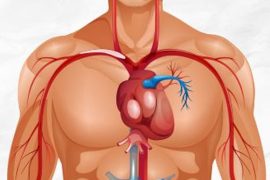When it comes to fitness, gaining muscle mass is a key goal for many aiming to boost strength, improve health, or enhance their physique. While it might seem like building muscle demands an intense gym routine, the process can be more manageable with the right approach. A balanced combination of consistent exercise, proper nutrition, and adequate rest is essential. Simple yet effective strategies—like following a calorie-surplus diet rich in protein, training regularly with resistance exercises, and prioritizing quality sleep—can significantly support muscle growth and make your fitness journey both effective and sustainable.
Muscle mass refers to the total weight of all the muscles in your body, including skeletal, smooth, and cardiac muscles. According to fitness expert Chandrashekar Gajawelli, the skeletal muscles—those you actively train in the gym—are crucial for movement, strength, and stability. Building muscle mass goes beyond just physical appearance; it significantly supports metabolic health, functional strength, and injury prevention. A study published in The Journal of Nutrition highlights a linear relationship between muscle mass and strength, indicating that individuals with more muscle tend to be stronger. This makes it essential to understand how to effectively increase muscle mass through the right combination of exercises and a nutritious, protein-rich diet.
Why Is Muscle Mass Important?
1. Boosts Metabolism and Burns More Calories: Muscle is a metabolically active tissue, meaning it helps burn more calories even at rest. This supports fat loss and helps in maintaining a lean, healthy body.
2. Enhances Strength and Physical Performance: Increased muscle mass leads to greater strength and endurance, making both daily activities and exercise routines easier and more efficient.
3. Protects Joints and Lowers Injury Risk: Strong muscles support your joints, reducing the stress placed on them and lowering the risk of injuries—especially important as we age.
4. Improves Insulin Sensitivity and Blood Sugar Control: More muscle enhances the body’s ability to process glucose, improving blood sugar control and reducing the risk of type 2 diabetes.
5. Counters Age-Related Muscle Loss (Sarcopenia): Muscle naturally declines with age, but strength training and good nutrition help preserve it, keeping you mobile and independent longer.
How to Gain Muscle Mass: A Detailed Summary
Building muscle mass effectively involves a combination of nutritional strategies, resistance training, adequate recovery, and, if necessary, evidence-based supplementation. Here’s a breakdown of the key steps:
1. Prioritise Protein Intake
Protein is the cornerstone of muscle growth, as it supplies the amino acids required for muscle repair and development.
- Recommended Intake: 1.6 to 2.2 grams of protein per kilogram of body weight per day.
- Meal Timing: Distribute protein intake evenly across 4–5 meals daily to optimize muscle protein synthesis.
- Top Protein Sources:
- Animal-based: Chicken, fish, beef, eggs, Greek yogurt, cottage cheese.
- Plant-based: Tofu, lentils, chickpeas, tempeh.
- Supplements: Whey protein, casein, or plant-based protein powders.
2. Follow a Progressive Strength Training Routine
Muscles grow when they are challenged regularly. The concept of progressive overload is essential—gradually increasing weight, reps, or intensity.
Core Compound Exercises:
- Squats – Target quads, glutes, and hamstrings.
- Deadlifts – Engage back, glutes, and hamstrings.
- Bench Press – Builds chest, shoulders, and triceps.
- Pull-ups – Strengthen the back and biceps.
Workout Structure:
- Train 3–5 times per week.
- Aim for 6–12 reps per set using moderate to heavy weight.
- Focus on form and gradually increase load every few weeks.
3. Eat in a Caloric Surplus
To build new muscle, your body needs extra energy. This doesn’t mean overeating junk food, but consuming clean, nutrient-dense calories.
- Increase Complex Carbohydrates: Quinoa, oats, brown rice, sweet potatoes.
- Add Healthy Fats: Avocados, nuts, seeds, olive oil.
- Stay Hydrated: Drink at least 3–4 litres of water daily.
- Track Intake: Use apps or food journals to ensure you’re eating enough to support muscle growth without excessive fat gain.
4. Prioritise Recovery and Sleep
Muscles grow outside the gym—during rest. Neglecting recovery can limit gains and increase injury risk.
Sleep Quality:
- Aim for 7–9 hours of quality sleep each night.
- Sleep promotes growth hormone release, essential for muscle repair.
Active Recovery:
- Include light stretching, foam rolling, and mobility work on rest days.
- Avoid overtraining and listen to your body.
5. Consider Evidence-Based Supplements
Supplements can support your progress but should not replace whole foods. Always consult a healthcare provider before starting any supplement.
- Whey Protein: Convenient way to meet daily protein goals.
- Creatine Monohydrate: Supports strength gains and enhances muscle performance.
- Omega-3 Fatty Acids: Help reduce inflammation and speed up recovery.
*Avoid fad supplements and focus on those backed by scientific evidence.
Gaining muscle mass is a gradual and consistent process. It’s not just about lifting heavier weights—success lies in balancing effective workouts, smart nutrition, proper recovery, and tracking progress. Stay patient and consistent, and over time, you’ll see both strength and muscle gains.
Disclaimer:
The information contained in this article is for educational and informational purposes only and is not intended as a health advice. We would ask you to consult a qualified professional or medical expert to gain additional knowledge before you choose to consume any product or perform any exercise.






